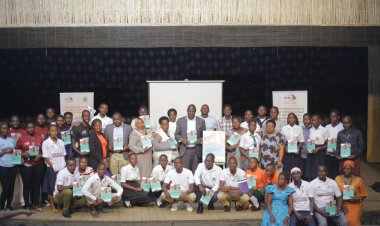The Islamic State (ISIS) has claimed responsibility of the November 16, twin bombing in Kampala, Uganda.
In 2015, the ADF group split amid an internal power struggle with one half of the group pledging an alliance with the Islamic State(ISIS). #POAIpdates

The Islamic State claimed responsibility for a suicide bombing on Tuesday in Uganda's capital city of Kampala that killed three people and forced an evacuation of parliament, Reuters reported.
In addition to those killed, the explosions sent 33 people to the hospital, five of whom are in critical condition, a police spokesperson told Reuters. Of the three killed, two were police officers, Reuters reported.
The first attack, that killed the police officers, took place near a police station. The two subsequent attacks took place about three minutes after the first near the parliament building and were executed by two bombers riding motorbikes.
A booming sound like that from a big gun went off. The ground shook, my ears nearly went deaf," Peter Olupot, a 28-year-old bank guard who works near parliament, told Reuters. "I saw a vehicle on fire and everyone was running and panicking. I saw a boda boda [motorcycle] man—his head was smashed."
Claiming responsibility through its Amaq News Agency, the Islamic State's attack follows a similar suicide bombing last month outside of a police station but did not result in casualties other than the attacker. Police intelligence indicated that the Tuesday attacks were carried out by the Islamic State's Allied Democratic Forces (ADF) wing.
The ADF operates in both Uganda and the Democratic Republic of the Congo. It has operated since the late 1990s. However, in 2015 the group split amid an internal power struggle with one half of the group pledging an alliance with the Islamic State. Reuters reported that the nicknames of the three attackers indicated all three were from Uganda.
This flurry of recent attacks represents a major security setback for a country that has spent years cultivating Western security support. The U.S. State Department reported in 2019 that it provides roughly $970 million to Uganda a year for development and security assistance.
Dino Mahtani of the International Crisis Group told Reuters that ADF had shifted its focus from settling scores with local opponents to controlling local war economies. Reuters reported that the group started training its fighters to use suicide vests in March and has ratcheted its recruitment of volunteers and focus on developing increasingly advanced plans.
"With the more recent affiliation of its main faction to ISIS [Islamic State], a number of foreigners from across East Africa with more globalist jihadist agendas have been arriving into its camps," Mahtani told Reuters.

































